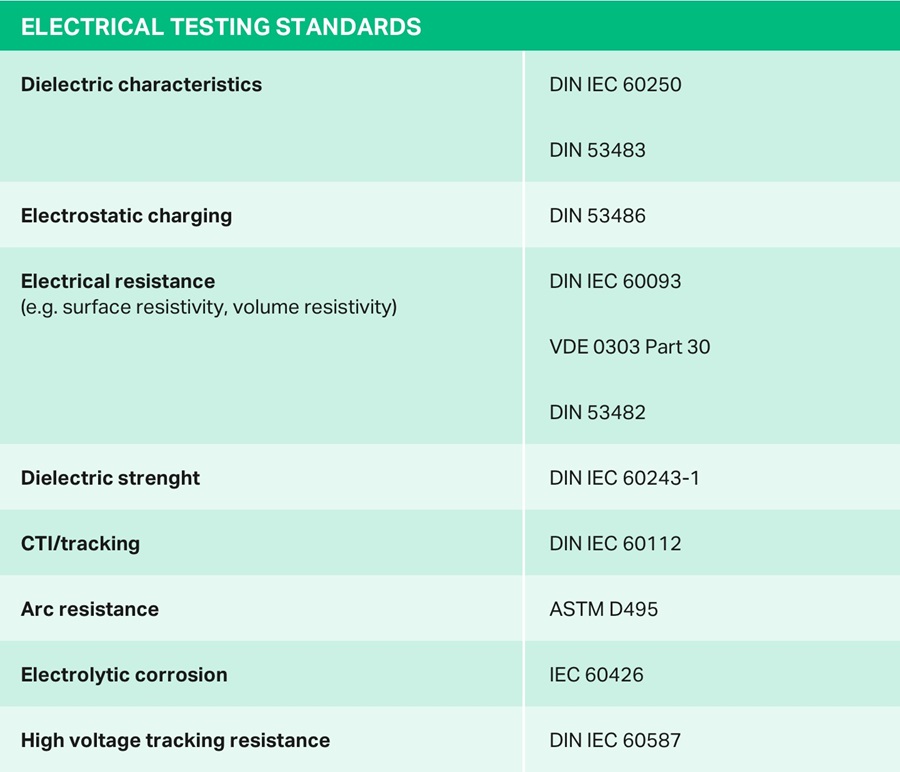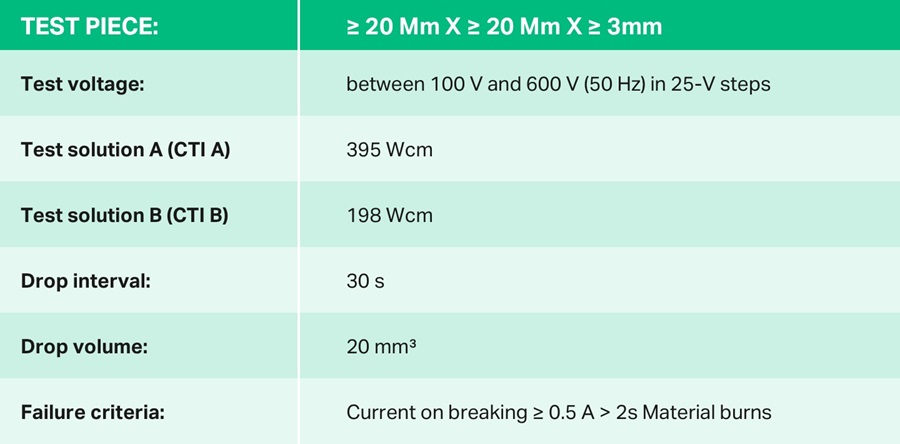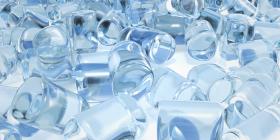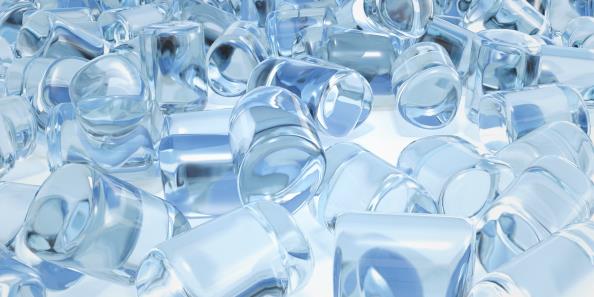
Technology
Electrical properties
The electrical properties of thermoplastic polyurethanes (TPU) are essential for cables and other applications. We test the electrical resistance and dialectric properties of our TPU grades to ensure safety and performance.
Featured Brands
- Thermoplastic polyurethanes
Like all plastics, Desmopan® has a relatively low electrical conductivity. This makes it suitable for use as an insulating material in applications such as cable sheathing or cable connectors. Because of its outstanding mechanical properties, all-TPU cables have even been produced as special constructions. In these and similar cases, the electrical properties of Desmopan®, particularly its electrical resistance and dielectric properties, are important factors. We conduct electrical measurements exclusively on annealed test specimens, with specified annealing conditions that apply for individual Desmopan® grades. Measured resistances and dielectric parameters are always a function of the moisture content and the temperature of the specimens, as well as of the measuring frequency.
All specimens must therefore be acclimatized prior to testing in accordance with the applicable standard (standard climate). Our Thermoplastics Testing Center (TTC) determines the electrical properties of Desmopan® grades based on the tests listed below. The lab also accepts external requests for testing.

Electrical resistances
Surface resistivity and volume resistivity are two key values that indicate the electrical resistance of TPU. Both values are measured in line with IEC 60093. The surface resistivity of Desmopan® ranges from 1013 to 1015 Ω. Its volume resistivity, in contrast, lies between 1011 and 1015 Ω x cm. With both resistivities, the measured value decreases in direct relation to the material’s hardness. Grades with a hardness of approximately 70 Shore D demonstrate a resistance of 1015 Ω, while softer or more flexible grades (e.g. 70 Shore A) demonstrate a resistance in the lower measurement range.
Dielectric strength
This is the electric field strength at which the insulating material starts to break down. It is therefore a measure of the insulating capacity of electrical insulators.
Testing for dielectric strength is conducted according to IEC 60243–1 and set out in a schematic diagram in the Thermoplastics Testing Center (TTC). The dielectric strengths of polyester Desmopan® grades increase from 22 to 32 kV/mm with an increasing hardness. The dielectric strength of polyether Desmopan® grades is higher, starting at 35 kV/mm for lower hardness values and rising to 38 kV/mm for higher hardness values.
Testing for dielectric strength is conducted according to IEC 60243–1 and set out in a schematic diagram in the Thermoplastics Testing Center (TTC). The dielectric strengths of polyester Desmopan® grades increase from 22 to 32 kV/mm with an increasing hardness. The dielectric strength of polyether Desmopan® grades is higher, starting at 35 kV/mm for lower hardness values and rising to 38 kV/mm for higher hardness values.
Dielectric constant
The dielectric constant is an important dielectric property for thermoplastics (TPU). It is an unnamed ratio which specifies the factor by which the capacity of a given capacitor increases when an insulating material is placed between the capacitor plates instead of a vacuum. This value thus constitutes a measure of the capacity of insulating materials to separate electric charges. The dielectric constant is temperature- and frequency-dependent and determined on the basis of IEC 60250 in the Thermoplastics Testing Center (TTC). Dielectric constant values measured for Desmopan® range from 8.0 to 4.0. These values decrease in direct relation to the material’s hardness in the same way as the electrical resistance values. Polyether grades generally have slightly higher dielectric constants than polyester grades. One grade displays a slight drop for this value as the measuring frequency increases.
Dielectric loss factor
The dielectric loss factor is another important dielectric property for thermoplastics (TPU). This value is a measure of the energy absorbed in the alternating field of the insulator. It is temperature- and frequency-dependent and determined on the basis of IEC 60250 in the Thermoplastics Testing Center (TTC). Dielectric loss values measured for Desmopan® range from 0.10 to 0.03. The values are inversely proportional to hardness, i.e. they increase when moving from harder to softer (or more flexible) grades. No notable differences are evident between polyether grades and polyester grades. Dielectric loss increases with a higher measuring frequency.
Tracking
Electrically conductive paths can form on the surface of solid insulating materials as a result of electrolytic impurities. These are the “tracks” that develop when a voltage is applied. Tracking is measured using the Comparative Tracking Index (CTI) in the Thermoplastics Testing Center (TTC). All the Desmopan® grades measured to date have a CTI of 600.


















